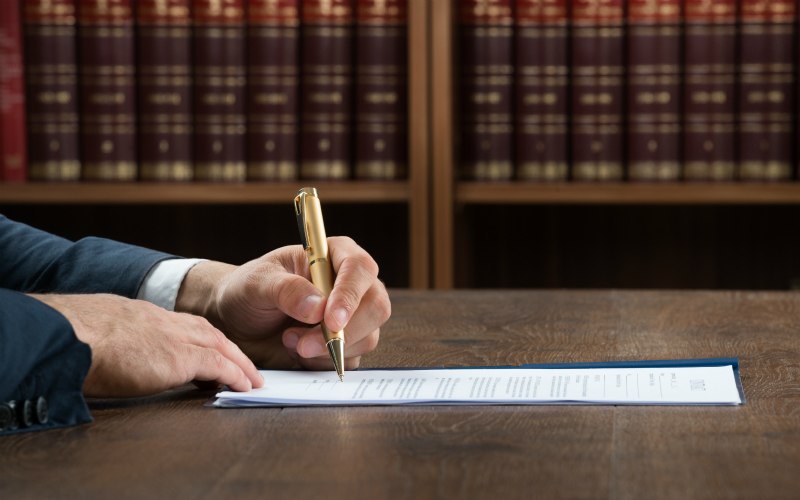
Powers of Attorney have been in the news in recent times, and not in a favourable light. In July, former TV presenter Hayley Matthews was jailed for stealing more than £100,000 from her mother while she was acting as her Attorney and in December a (non-Solicitor) advisor in Essex was in the news for allegedly putting undue pressure on clients to appoint him as their Attorney, despite their having reservations about him.
Despite these high-profile but rare examples of bad behaviour by Attorneys, the concept of a Power of Attorney is an extremely useful one and an essential method of planning for the future. What should you consider when putting a Power of Attorney in place?
What is a Power of Attorney?
A Power of Attorney is a legal document that gives one or more people, such as a family member, a friend, or a professional, certain powers to act on your behalf in your affairs. The appointed person or persons are known as Attorneys.
There are two types of powers which can be given to your Attorney, continuing and welfare powers. The continuing powers relate to the management of your finances and property, including paying bills, claiming benefits, dealing with your pensions and any investments, and obtaining access to your confidential financial information. The welfare powers relate to your personal welfare such as whether to accept medical treatment and where you should live if care is required.
Both types of powers are usually combined in the same document. However, you may decide to include only include one set of powers or to appoint a different Attorney for different powers.
What happens if I don’t have a Power of Attorney?
In the absence of a Power of Attorney, if you become incapable, it is often necessary for a Guardian to be appointed by the courts. The process of appointing a Guardian is often expensive and time consuming and it may mean that there is a delay in any action being taken on your behalf if you lose capacity.
Choosing an Attorney
As the Hayley Matthews case shows it is important that you appoint the right person as your Attorney.
The appointment of an Attorney doesn’t mean that you are giving up on dealing with your own affairs and that your Attorney immediately takes over making decisions. You should be encouraged to deal with them yourself whilst you are still able to do so. Often a Power of Attorney is not used until such time as, through accident or illness, you are unable to deal with matters yourself. If your ability deteriorates, you should still be involved and there should be minimum intervention by your Attorney. They should only intervene as far is as necessary to ensure that your best interests are served.
Sometimes, someone may decide to instruct an Attorney to deal with their financial affairs, regardless of their capacity, because it is more convenient for them to have someone else dealing with the paperwork.
The circumstances are different for welfare powers, which will only come in to play when you are no longer capable of dealing with matters. Powers of Attorney often provide that a certificate must be obtained from a medical practitioner to confirm that you no longer have sufficient capacity before your Attorney can start to make decisions on your behalf.
When making decisions, relating to you or your affairs, your Attorney must act in accordance with your best interests, considering your past and present wishes, along with the wishes of your nearest relatives.
It is important that you have confidence in who you are appointing as your Attorney. You are giving them extensive powers and there is an obvious risk that your Attorney could misuse the powers granted.
When does a Power of Attorney become operational?
The Office of the Public Guardian is the governing body responsible for regulating Powers of Attorney and overseeing Attorneys. A Power of Attorney is not operational until it has been registered with the Office of the Public Guardian.
Once the document has been registered, your Attorney can register their appointment with any banks and investment holders to assist you with your financial affairs. There is a code of practice which highlights the duties and responsibilities of your Attorney and recommends that they should keep accounts of all expenditure and keep your property and/or money separate from their own.
However, you must be aware that, unlike a Guardian, appointed by the courts, an Attorney is less closely regulated. There is no requirement for them to produce any accounts of expenditure to the Office of the Public Guardian and their actions are not monitored. Therefore, it is important to realise that, whilst your Attorney has certain duties and responsibilities, care should be taken in considering who to appoint.
If someone is concerned by the way in which your Attorney is exercising their duties and responsibilities, they can refer the matter to the Public Guardian’s Office for investigation. If your Attorney has applied the code of practice correctly and kept proper records and accounts, they should have nothing to fear from any potential enquiry.
Reasons for putting a Power of Attorney in place
In deciding whether to put a Power of Attorney in place, you need to consider the benefits and risks of doing so. It is your opportunity to personally nominate someone who you can trust and consider would be able to deal with the responsibility of acting on your behalf should the need arise. You also maintain control by deciding what powers you wish to grant them.
If you lose capacity, without a Power of Attorney in place, the courts may appoint a guardian that you would not have chosen and only give them limited powers to assist with your affairs.
There are costs involved in preparing a Power of Attorney, but these are significantly less than the costs of a court application to appoint a guardian. The appointment of a guardian can take months to process and delay any assistance that can be provided on your behalf. This can cause unnecessary stress for you, your family, and your friends.
In Summary
Although Powers of Attorney are very useful, it is important that you fully understand the nature of the powers granted and are confident that the person or persons are able, willing, and trustworthy before appointing them as an Attorney.
Every adult, irrespective of age, health, or wealth, should consider putting a Power of Attorney in place. This document will give you, your family, and your friends, peace of mind that, if you cannot make decisions or manage your affairs yourself, that you have someone appointed to make these decisions in your best interests.
